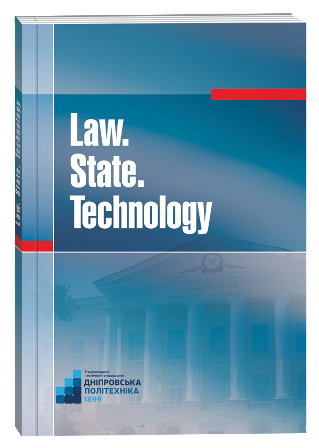HISTORICAL AND LEGAL FEATURES OF CRIMINOLOGICAL ANALYSIS OF CORRUPTION PREVENTION IN UKRAINE
DOI:
https://doi.org/10.32782/LST/2021-4-15Keywords:
corruption, analysis, prevention, historical and legal features.Abstract
The article explores the question of historical and legal features of crime prevention using the method of criminological analysis. It is stated that corruption in Ukraine is the number one problem throughout the history of the formation and functioning of the Ukrainian state. It is determined that conceptual analysis in the field of preventing corruption in Ukraine should be considered through a certain matrix of formation, a state-organized corruption component. Throughout history, Ukraine has developed several types of statehood, which in fact certainly had a corruption background in the form of a patrimonial, police and palace format. When deciphering the patrimonial type of state, the institutional matrix of functioning is conditioned by unconditional service to the state and total refrigeration, which leads to a distribution economy built on the principle of a “feeding” system. The most negative aspects of palace statehood in Ukraine were due to the alienation of power from society. This watershed is still kept today in distrust of power structures, officials of all stripes. Today, the state is trying to bring about certain bridges between power and society by creating institutions of civil society. But there are still a lot of problems. It was concluded that preventing corruption in Ukraine lies in the problem of legislation. In the fight against corruption, all institutions of the state, public organizations, citizens should be involved. Great responsibility lies with the authorities, which must act openly and be controlled by society. The openness of the authorities means ensuring that citizens have access to information about the activities of the executive authorities, about corruption and results and ways to combat it, about the procedures for making and executing power decisions, about the mandatory declaration of the income of state employees, providing information about real estate of officials and their families, etc. Civil society is the most important ally of States in the fight against corruption. Without effective interaction with nongovernmental organizations, with civil society, the inclusion of the public, public groups in this process, it is impossible to solve the problem of corruption.
References
Глібова І.І. Палацова держава в сучасності. Політична концептолгія. 2011. № 2. С. 82–89.
Лубський Р.О. Державність як соціальна реальність. Фонд науки і освіти, 2014. 292 с.
Про запобігання корупції : Закон України від 14 жовтня 2014 року № 1700-VII. URL: https://zakon. rada.gov.ua/laws/show/1700-18#Text (дата звернення: 07.10.2021).








